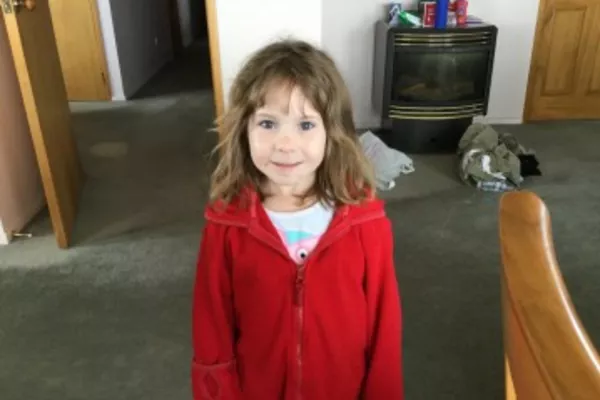Jessica's story
3 May 2018
Jessica was born by elective Caesarean section in February 2011. Everything went to plan except she started having breathing issues a few minutes after she was born. The obstetrician suspected fluid on her lungs so called the registrar back and she was promptly sent to the special care unit. It wasn’t until late that night that the night shift nurse realised she had a large bilateral cleft of the hard and soft palate.
The next morning I had a team of doctors turn up at my bedside to inform me that she had a cleft palate and a condition called Pierre Robin Sequence (PRS). This of course was like speaking to me in a foreign language as I had never heard of it. Basically she had a sequence of genetic “defects” (for want of a better word) that included her large cleft, a small lower jaw and a large tongue that would fall back in her mouth and block her airway. They told me that this could sometimes be a marker for a genetic syndrome. They said it probably wouldn’t be and that they would do testing at some stage. I urged them to do it straight away and they sent a sample away for testing.
On day five she started having blue episodes and the hospital decided we needed to be flown to a bigger hospital who had a paediatric speech language therapist. This of course was quite distressing and I worried what the future held, as well as the prospect of being separated from my partner and two other children, what would this mean for our family - it was hard not to stress about it all. We were flown on day seven in the Life Flight ambulance to the bigger hospital and spent three weeks there whilst I learnt how to feed and care for her. This hospital was 1 hour 30 minutes from where we lived so I only got to see my partner and other children at the weekends.
We found out whilst we were there that she had a large deletion on the bottom end of one of her number 4 chromosomes. As well as having the cleft palate and PRS she also had hypotonia (low muscle tone) which complicated feeding and breathing for her. She needed to be slept prone (on her tummy) to help keep her airway open and needed a nasal gastric feeding tube for the first six months of her life. I learnt to tube feed her and use a haberman feeder (special teet for clefts). Once I was competent in her care and she passed her car seat test we were sent home with support from the paediatric nurse for our area, speech therapist and visiting neurodevelopmental therapist. We lived rurally and I was more than a little nervous to take her home but it is amazing how you learn to cope and surprise yourself how capable you are.
After more genetic testing we received a letter stating that Jessica had a large deletion on one of her number 4 chromosomes and that she would require support throughout her life and that this must be very disappointing. There was very little information about her deletion and no information on support groups or networks. I wasn’t disappointed, I was lost and had no idea what all this meant - would Jessica be able to walk or talk? I researched as much as I could via the internet and all I could find was a lot of negative medical papers with dire predictions for her future. I asked her paediatrician for her exact deletion and this opened up much more information online. I was able to join Unique, Facebook support groups and find NZORD and Parent2Parent online.
I am happy to report though that even though those first few years were tough Jessica has surprised us all. All her milestones were delayed but now she is a healthy, gorgeous, determined young lady, who just wants to do everything everyone else is doing. Yes, she still has challenges and is developmentally delayed but as one of her preschool teachers once said “her determination will take her far.”
One thing that saddens me though is the fight you have to go through to get them that very support the geneticist spoke of in her letter. Jessica looks normal, does not have major physical disabilities and does not have behavioural issues at school so trying to get her the support she needs and deserves at school to get a decent education is unbelievable. She has speech issues due to her cleft, very definite learning disabilities and she relates best to her younger peers so has some social issues too. We are very lucky that she goes to a small country school who are so welcoming and supportive and have fought hard to get her the support that she gets, but unfortunately getting her what she actually needs and deserves is an ongoing battle.
All that said though I am so glad I never knew about her chromosome disorder before she was born as I wonder if we would have only been told all the negatives, and possibly would have missed out on living this life with our beautiful, sweet and amazing little girl.


